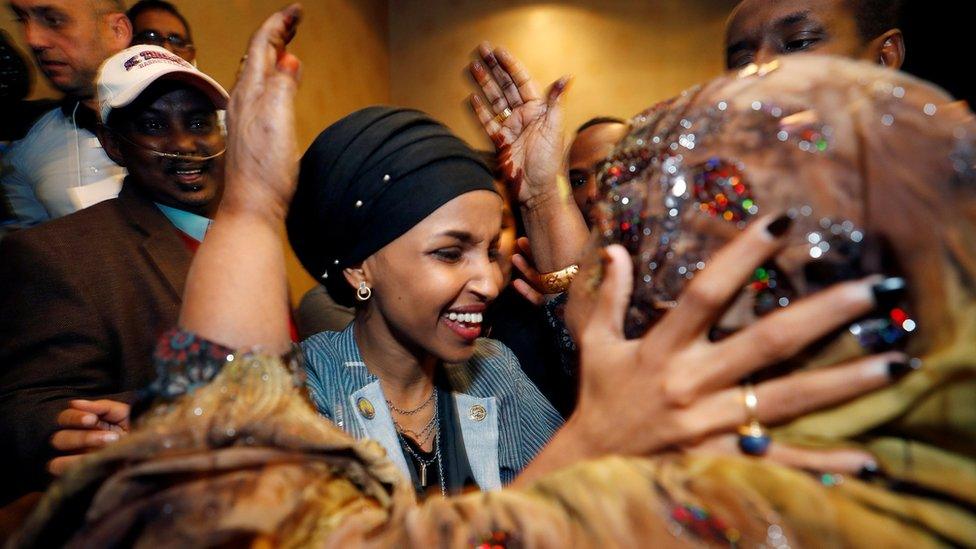US House Democrats challenge Trump on shutdown
- Published
Pelosi said she was privileged to serve with more than 100 women in Congress
The Democratic-controlled US House of Representatives has voted to end a partial government shutdown, but the move looks certain to be vetoed by President Donald Trump.
Mr Trump has said he will reject any measure that does not provide funding for his proposed US-Mexico border wall.
New House Speaker Nancy Pelosi, who will resume negotiations with Mr Trump on Friday, branded the wall immoral.
The new Congress is considered the most diverse in history.
The bills passed by the House of Representatives would fund homeland security operations, including $1.3bn in border security, until 8 February, and fund several other agencies until September.
However, it requires Senate approval, and sign off from the president, in order to become law.
Republicans currently have a majority in the Senate, and majority leader Mitch McConnell has said Republicans there would not back measures that Mr Trump did not support.
Mr McConnell called the Democrats' move a "total nonstarter" and a "political sideshow".
However, Democrats argue that the bills are nearly identical to ones passed by the Senate last month, before Mr Trump insisted wall funding must be included.
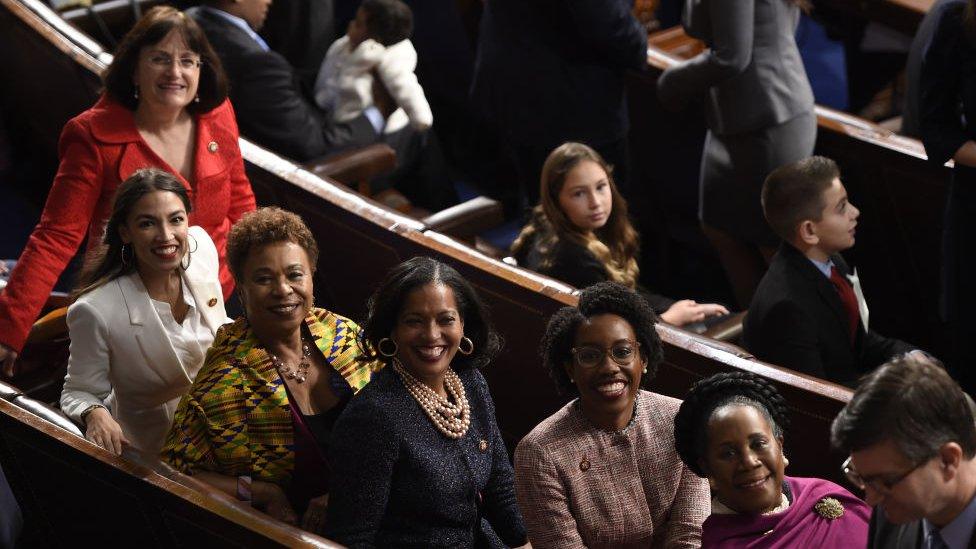
The 116th Congress is considered the most diverse in history
Nancy Pelosi, a Democrat from California, was elected as Speaker of the House for a second time - becoming the third most powerful politician in the US.
She previously led the House from 2007-11 - and remains the only female to hold the position.
She invited the children and grandchildren of House Representatives to join her as she was sworn in, saying: "I'm particularly proud to be a woman Speaker of the House of this Congress, which marks the 100th year of women having the right to vote."
Later, she told reporters: "We're not doing a wall... a wall is an immorality between countries. It's an old way of thinking. It isn't cost effective."
She added that spending money on "more infrastructure at the ports of entry" and better technology would be more efficient.
What is new about this Congress?
As of Thursday, 102 women serve in the 435-seat House, an all-time high, including 36 newly elected members and a record 43 women of colour.
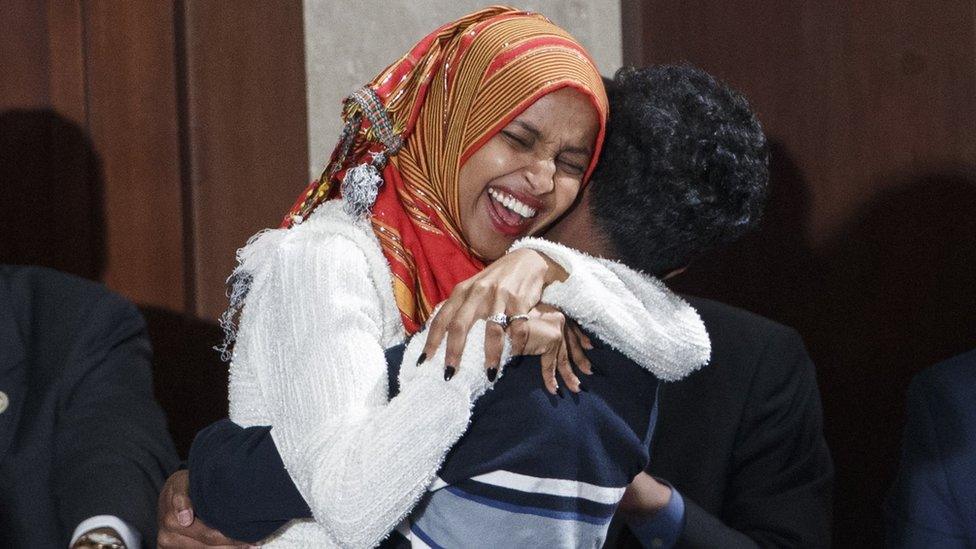
Ilhan Omar, one of the first Muslim congresswomen, hugs her son after being sworn in
While Republican women marked some firsts this past election season, like Marsha Blackburn becoming the first female Tennessee senator, the vast majority of these new lawmakers are Democrats.
They include:
The first Muslim congresswomen - Michigan's Rashida Tlaib, who took her oath on the Koran, and Minnesota's Ilhan Omar, who became the first person to wear a hijab in Congress
The first Native American congresswomen - New Mexico's Debra Haaland and Kansas' Sharice Davids
New York's Alexandria Ocasio-Cortez, 29, the youngest woman to be elected to Congress
Carol Miller of West Virginia is the only new female Republican representative, bringing the total number of conservative women in the House to 13 - a decrease from 23 before the mid-term elections.
How has the shutdown come about?
The return of the woman Republicans love to hate
The partial US government shutdown began when Congress and Mr Trump failed to reach an agreement over a budget bill in December.
The Republicans had passed an initial funding bill including $5bn (£4bn) for the wall, when they still had a majority in the House, but they could not get the necessary 60 votes in the 100-seat Senate.
Democrats won the majority of the House in the November mid-term elections, and the new representatives were sworn in on Thursday.
"We're asking the president to open up government," Ms Pelosi told the Today show before the first session of the new House. "We have given the Republicans a chance, external to take yes for an answer."
Which side will blink first?
The president is due to resume budget talks with top Democrats and Republicans on Friday morning.
The White House says it is again floating the idea of a deal for 'Dreamers' - immigrants who illegally entered the US as children.
Democrats want to ensure that these individuals are shielded from deportation, but have insisted that they will not support a deal over wall funding.
Vice-President Mike Pence told Fox News the deal was being "talked about", but that Mr Trump said no deal was possible "without a wall".
Meanwhile, some vulnerable Republican senators up for re-election in 2020 have spoken out in favour of approving the budget bills to end the government shutdown.
Senator Cory Gardner of Colorado was the first to do so, telling The Hill, external on Thursday that Congress should reopen the government and let wall negotiations continue afterwards.
Maine Senator Susan Collins echoed this view, suggesting the president should sign the agreed upon spending bills first so federal employees could get back to work, Politico reported, external.
What about all the impeachment talk?
Mr Trump pushed back on Friday against Democrats who are calling for him to be removed from office.
The Republican president tweeted that his political enemies only want to impeach him because he is "the most successful".
Allow X content?
This article contains content provided by X. We ask for your permission before anything is loaded, as they may be using cookies and other technologies. You may want to read X’s cookie policy, external and privacy policy, external before accepting. To view this content choose ‘accept and continue’.
Hardline Democrats are demanding action.
After being sworn in on Thursday, Ms Tlaib used an expletive to describe the president while vowing to impeach him.
But fellow Democratic representative and civil rights icon John Lewis criticised her "inappropriate" remark, telling reporters impeachment talk "is a little premature".
The new House speaker also squelched calls for impeachment.
Ms Pelosi said they must "wait and see" what happens with special counsel Robert Mueller's inquiry into Russia's alleged meddling in the 2016 US election.
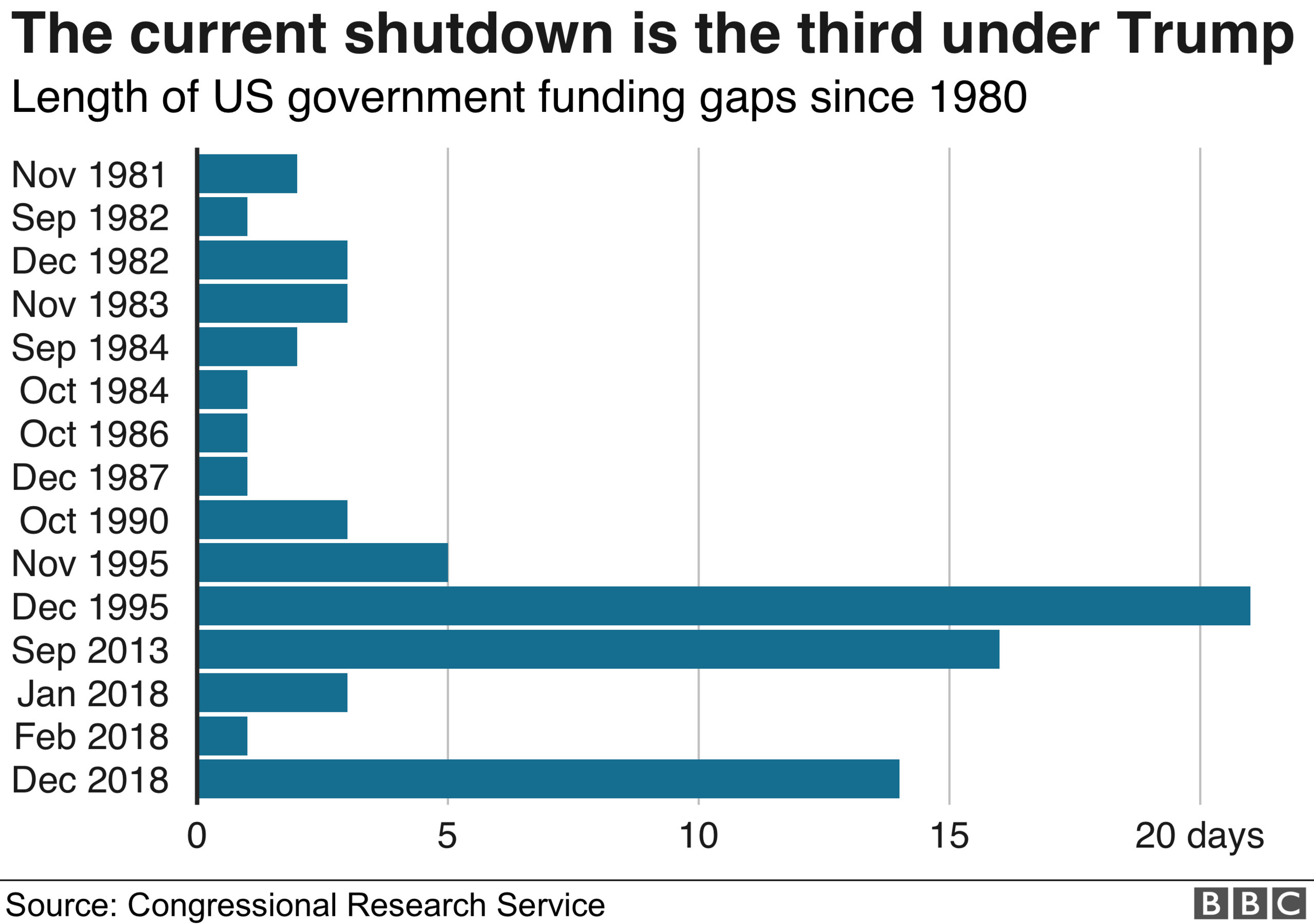
What does the partial shutdown mean?
About 25% of the US federal government has no funding
Nine departments have been affected, including Homeland Security, Justice, Housing, Agriculture, Commerce, Interior, and the Treasury
Around 800,000 federal workers are now furloughed - that is, temporarily laid off due to a lack of funding - or working without pay
Native American tribes who receive substantial federal funding are struggling
National Parks have become hazardous without staff

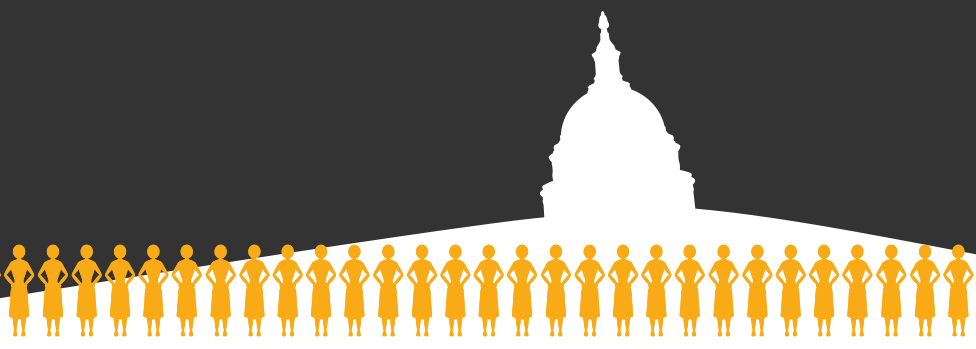
More women than ever before won seats in Congress in the 2018 mid-terms.
- Published3 January 2019
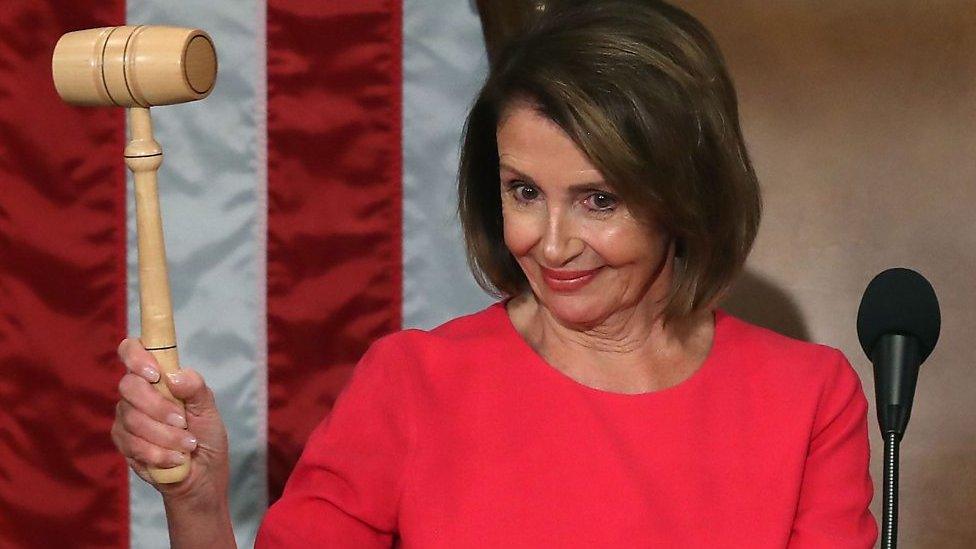
- Published2 January 2019
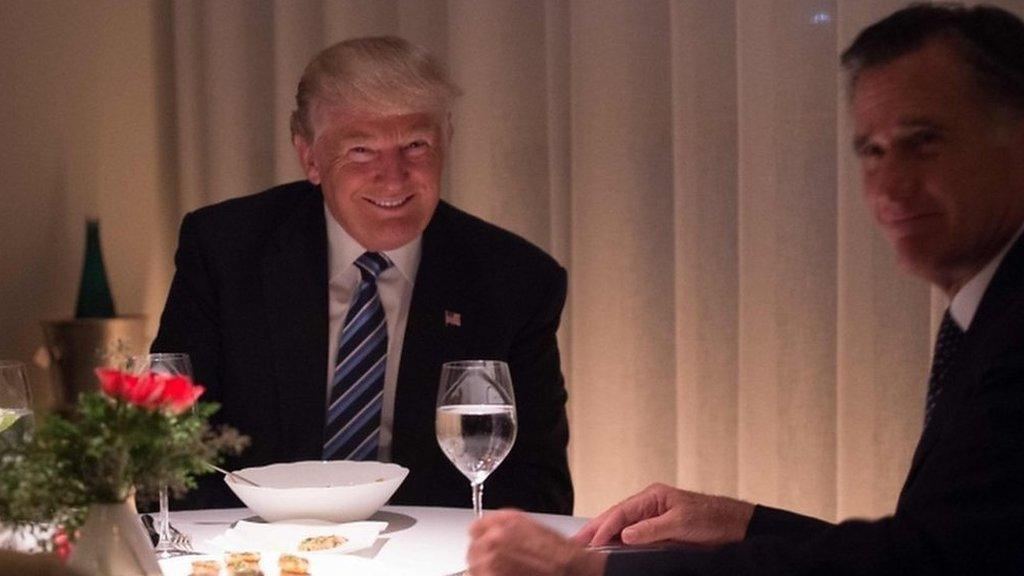
- Published21 November 2018
- Published8 November 2018
